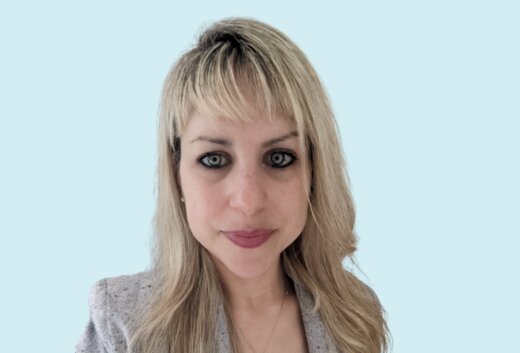21 June 2023
There are lot of developments coming from the histopathology department; Dr Liron explains why she finds it an exciting place to work as a consultant haematopathologist and molecular genetics pathologist.
What is your role within King’s Health Partners?
I am a consultant haematopathologist and molecular genetics pathologist within the histopathology department at King’s College Hospital, which is part of the South East Haematological Malignancy Diagnostic Service (SE-HMDS). As such, I am involved in the diagnosis of haematological malignancies. I am also one of the educational supervisors for my department and my colleagues and I are in the process of developing a haematology diagnostics fellowship program for trainees with interest in the field.
I am very fortunate to be able to be part of the faculty delivering the King’s Health Partners Haematological Malignancy Diagnostic Service (HDMS) course. This is a one of kind course in that it is entirely digital and allows a hands-on life-like case-based experience of what it is like to be a diagnostician working within an HMDS.
What do you enjoy most about your role?
Haematopathology is one of the most complex and challenging fields when it comes to diagnostics. I enjoy tackling these challenges and the continuous learning that results from seeing a variety of pathologies every single day. It is a pleasure taking part and working in teams in multi-disciplinary meetings. There are many opportunities for development in haematology diagnostics, which present exciting prospects for the future. Being involved in education is also one of my biggest pleasures at work, as appropriate training is key to delivering the best patient care.
What inspired you to get into this work?
I enjoy the balance between science/diagnostics and the clinical impact it makes in haematology. Although I personally am not patient-facing, everything we do has a huge impact on patient outcome, and I am passionate about continuously improving our service to provide the best patient care possible. I have trained in the US and appreciate the differences between practise there and here in the UK. I am trying to utilise the best approaches from both worlds with the ultimate aim of developing the best service possible.
What are the benefits of working in partnership?
Haematology diagnostics require a multitude of expertise types and many people contribute to every diagnosis that is made. Working in these teams means you are constantly enriching yourself and learning from others. No matter what title/role, you can always learn from the staff around you. I also find that the people around me are what keeps me going regardless of workload pressures; people inspire me to aim for the developments that will improve our service, even when faced with obstacles.
What would be your one career top tip? to staff and students?
As mentioned, you can always learn from the people around you. Stay modest and always strive to keep learning and improving.
Sign up to the Haematalogical Diagnostic Service (HMDS) Course, Friday 7 July 2023





